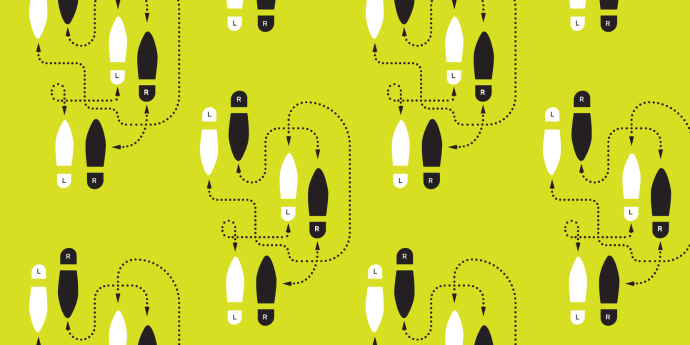Prospering despite ‘poor’ productivity
New Zealand’s productivity is one of the worst among developed economies, but are we really that bad?

K Mitch Hodge on Unsplash
New Zealand’s productivity is not as high as other developed countries. We work longer hours, but produce less.
Our GDP per hour worked in 1970 was US$24, compared to an OECD average of US$25 (countries that joined the OECD before 1975). By 2020, it had risen to US$42, but the OECD average was up to US$64. We are lagging in terms of productivity growth, but that doesn’t mean we aren’t prosperous.
Economic researcher Arthur Grimes says from 1994 to 2018 – “before Covid mucked everything up” – New Zealand’s per capita real incomes grew faster than incomes in Austria, Belgium, Canada, Denmark, France, Germany, Greece, Italy, Japan, the Netherlands, Portugal, Spain, Switzerland, the UK and the US. “New Zealand was incredibly successful over that period,” he says.
While being less productive? What has made New Zealand prosperous is not that we are more productive per se, but that we are producing what the world wants.
Grimes argues New Zealand has a productivity success story to tell, one that is directly related to our prosperity.
“If we talk about productivity in terms of allocative efficiency, New Zealand has been incredibly successful since the early 1990s in changing its production towards things that people want to buy. We were switching out of stuff that no-one wanted – such as wool and to some extent meat – to things they wanted, for which prices were rising,” he says.
Grimes differentiates between technical efficiency – producing more from the same inputs (be that labour or capital) – and allocative efficiency – producing things someone wants to buy. With the shift to mainly dairy, our incomes improved irrespective of whether or not we were more productive in terms of efficiency.
Grimes says the productivity discussion can be sidetracked by political imperatives. The Productivity Commission, for example, was created as part of a confidence and supply agreement between National and Act and has now been disestablished as a part of a coalition agreement by National and Act – “the same two parties”.
“To be honest, the political discourse is such that if you are on the right of politics you want to say productivity growth in New Zealand is terrible because we have too much regulation, and we have to get rid of regulations,” says Grimes.
“If you are on the left you want to argue that productivity growth has been terrible because of all the reforms that were put in place in the 1980s and 1990s, therefore they haven’t worked and we have to get rid of those reforms.
“We need to get back to keeping that focus, at a board level, on the core business. We need to develop good multi- year plans, and then make sure management are incentivised and rewarded for continuous improvement, rather than the shiny new thing.”

“Each side agrees – on something that is wrong – and they both use it as an excuse for introducing their preferred ideological policies. But the data tells us that New Zealand has been a success story and we don’t need to go to either policy extreme,” says Grimes, a former Reserve Bank of New Zealand chair who was also on the board of the Financial Markets Authority. He is now a senior fellow at Motu Research and Professor of Wellbeing and Public Policy at Victoria University of Wellington’s School of Government.
According to the latest data (2019-22) from the OECD, Ireland is the most productive country in the world as measured by GDP per hours worked. In a comparison of 43 countries, New Zealand came in at 29.
Former Fonterra chief operating officer Fraser Whineray led a delegation of business leaders to Ireland in 2023, under the auspices of public policy think tank The New Zealand Initiative, to find out more about the country’s productivity success story.
The resulting paper, Irish Secrets: an Irish lesson in prosperity, advocated for an increased focus on education and more encouragement of foreign direct investment.
Whineray, whose directorships include the Port of Tauranga, Quayside Holdings and Waste Management, says they found a culture that was very business-friendly and extremely interested in attracting investment from large global firms.
That enthusiasm for foreign direct investment (FDI) was not just at the government level, Whineray says, but is shared by regular Irish people across cities and towns.
“This was highlighted to me by Simon Coveney, the Minister for Enterprise, Trade and Employment,” Whineray says. “Simon said he gets pressured when he goes outside of Dublin to the smaller cities and towns. Where is our FDI? Where’s my Microsoft? Where’s my Intel? Where’s all of this stuff? Because the locals know it brings high-paying jobs.”
Investment from such global powerhouses has been a significant driver of Ireland’s remarkable economic success story. From the mid-1990s to the late 2000s, Irish GDP surged, taking it from being one of Europe’s poorest countries to one of its wealthiest, spawning the nickname “Celtic Tiger”.
Whineray acknowledges New Zealand is unlikely to follow the same path, but he says lessons can be learned. One is that a good education provides benefits to students and their future employers.
While in Ireland, he was impressed with their Delivering Equality of Opportunity in Schools (DEIS) programme, launched in 2005, in ensuring no students are left out of the education system.
Another is that a consistent policy approach across governments can have economic benefits to a country.
“The long-term approach to policy they’ve had over the past 40 years has meant they’ve played a reasonable set of cards extremely well. I think what Ireland, as a nation, has benefited from is a sustained multi-year focus on the core job of government.”
The converse, political volatility, can deter investment, Whineray says. “I think all political parties need to make sure they keep creating an environment in which people can take risks. Small businesses, bigger businesses, making those investments and improving their competitiveness, hiring people, training them, developing them . . .”
At an enterprise level, there is a lesson in Ireland’s integration into the global economy. This provides international exposure that drives the innovation required to thrive on the international stage – it makes companies sharpen up.
New Zealand boards that aren’t exposed to international competition should create an environment within their organisations that “kind of forces that productivity to come through”.
“If you’re a director, think about the environment you are in and how to create an environment that will make people improve.”
He also advocates that boards focus their attention on ensuring their organisations remain sustainable and profitable.
“We need to get back to keeping that focus, at a board level, on the core business. We need to develop good multi-year plans, and then make sure management are incentivised and rewarded for continuous improvement, rather than the shiny new thing.”
If that sounds a little like Grimes’ argument on behalf of allocative efficiency, it is. But Whineray also stresses that, once strategy and policy are set properly, productive efficiency should be a target.
“It’s really important that boards create the right environment for the business to operate in. It will help align the executive, so they can dial up that efficiency.”
Inside ‘leprechaun economics’

K Mitch Hodge on Unsplash
When Ireland’s GDP grew 26.3 per cent in one year (in 2015, and that growth was later revised up to 34.4 per cent) Nobel Prize- winning economist Paul Krugman coined the term “leprechaun economics”.
Krugman was concerned the GDP growth was largely due to Ireland’s low tax rates attracting global giants – Google, Microsoft, Pfizer and Meta all operate head offices there – rather than any underlying strength in the productive economy. Looking at GDP figures, or the more widely used gross national income (GNI), as an indicator of Irish prosperity was potentially misleading.
That 34.4 per cent jump was driven by Apple vesting its intellectual property in Ireland, which led to accounting savings for the company and a tax windfall for the Irish government. Ireland has low tax rates, which attracts big global players, and has been accused of being a tax haven.
Is Krugman right? Is Ireland’s prosperity a mirage? What is the real size of the Irish economy? Ireland’s Central Statistics Office (CSO), the equivalent of Statistics NZ, has tried to answer this question by developing its own measure – GNI modified (or GNI*).
GNI modified excludes what the CSO terms “globalisation effects”. These are:
- Depreciation on intellectual property, which is disproportionately owned by foreign corporations and has little effect on the domestic economy
- Depreciation on leased aircraft, where leasers are based in Ireland for accounting purposes and the effect on the domestic economy is limited
- Money from global corporations that passes through the Irish economy but doesn’t actually remain in it
GNI modified shows Ireland’s workers are not actually twice as productive as their European counterparts – as bare statistics would suggest – and nor are they twice as prosperous. There are very real benefits to having large global corporates homed in the country, but they are not quite as large as they look at a glance.
While Ireland’s GDP figures “should be treated cautiously”, as Irish Secrets: an Irish lesson in prosperity puts it, its impressive economic growth over the past few decades is very real.